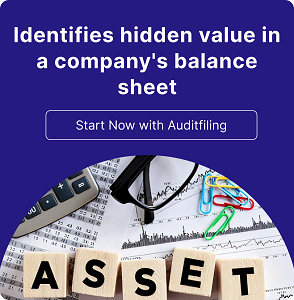
Asset-Based Valuation is a financial approach used to determine the true worth of a business or company by analyzing the total value of its assets minus its liabilities figure out how much a corporation or organization is truly worth, you add up all of its assets and then take away all of its obligations. This way of figuring out how much a business is worth looks at both its physical and non-physical assets, such as real estate, equipment, intellectual property, and investments. It is a significant aspect of finding out how much a firm is worth since it helps investors, analysts, and business owners figure out how much a business is worth and how stable it is financially at a certain period.
People commonly use this method to figure out how much a company is worth when it has a lot of physical assets, is merging, buying, or going out of business. It tells you how much a company's assets are really worth and helps the business use its resources better to make more money and be more efficient. This approach is a core part of Asset-Based Valuation which ensures a realistic measure of financial strength.
An Asset-Based Valuation shows more than just how much money a firm produces; it also shows what it owns and what it owes. It clears things out, helps people make investment choices, and improves financial analysis for future growth.
When you know what a company's physical and intangible assets are, it's easy to figure out how much they are worth through a proper asset valuation process.
Financial Planning and Reporting makes it easy to understand audits, mergers, and acquisitions, and makes sure that financial statements show fair value.
For Business Valuation: It helps investors and other interested parties figure out the equity value based on confirmed valuations.
When a company is going out of business or selling, it helps figure out the liquidation value using the asset valuation method.
Net Asset Valuation: This method helps you figure out how much a firm is worth by looking at its assets, which gives you a clear image of ownership equity.
A list of fixed and current assets,
Balance sheets and ledgers as examples of financial statements,
Information on depreciation and amortization,
Records of loans, debts, and unpaid bills,
Documents that support intellectual property and goodwill,
Receipts for buying assets or certificates of value.
These records aid with a thorough study of the company's net worth and make sure that the net asset valuation is based on correct financial information.
Finds out what the fair market worth of a company's assets and debts is,
Helps investors figure out the worth of a net asset value mutual fund or corporation by calculating its value,
Important for reorganizing a firm, merging businesses, and doing due diligence for accurate business valuation,
Increases investor trust by providing a validated business valuation,
Helps with long-term planning, lending, and financial reporting.
Financial statements (Balance Sheet)
Income Statement (Revenue, expenses and net income)
Proof Of Asset Ownership (Title Or Registration Documents, Contracts And Agreements)
Documentation Of Intellectual Property ( If Asset Is Intellectual Property You Will Need Documents Like Patents, Trademark, Copyrights)
RS: 0.01% of total amount